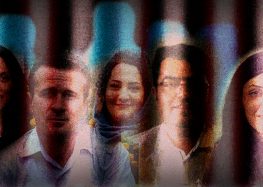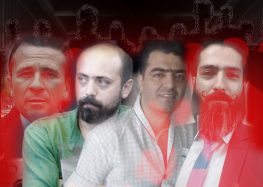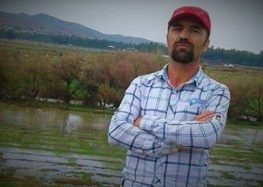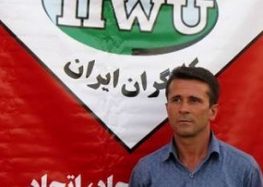Two Labor Rights Activist Sentenced to 11 Years in Prison for Peaceful Activism
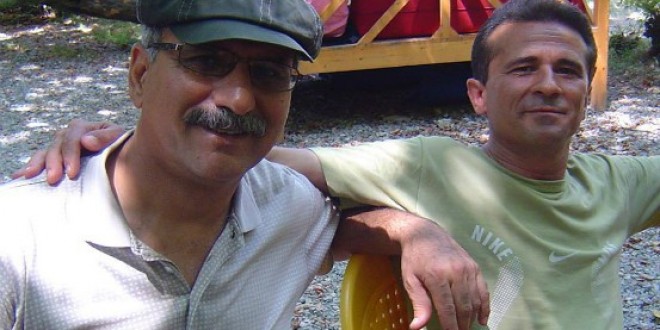
Labor rights activists Jafar Azimzadeh and Shapour Ehsani-Rad were sentenced to 11 years in prison each for their peaceful activism on October 15, 2016 by Branch 1 of the Revolutionary Court in the city of Saveh, 76 miles southwest of Tehran.
According to the court’s ruling, Azimzadeh and Ehsani-Rad were each sentenced to 10 years in prison for “organizing and operating an illegal group” and one year in prison for “propaganda against the state.” The alleged “illegal group” is the Free Workers Union of Iran, of which Azimzadeh is president and Ehsani-Rad is a member of the board of directors.
“I have been sentenced on the basis of charges I was tried and punished for before [for which I was] sentenced to six years in prison. In fact, I’m a prisoner on furlough (temporary leave),” said Azimzadeh in an interview with the International Campaign for Human Rights in Iran on October 15.
Azimzadeh was sentenced to six years in prison in March 2015 for “assembly and collusion against national security” and the repeat charge of “propaganda against the state.” In July 2016 he was temporarily released on furlough after he went on a two-month hunger strike demanding that the authorities reconsider his case.
According to Article 14-7 of the International Covenant on Civil and Political Rights, to which Iran is a signatory: “No one shall be liable to be tried or punished again for an offence for which he has already been finally convicted or acquitted in accordance with the law and penal procedure of each country.”
“All the charges and accusations against me are for trade union activities, such as organizing unions, non-violent labor strikes, and interviews with the media to defend workers’ rights, myself included. I am a worker,” added Azimzadeh.
Azimzadeh and Ehsani-Rad are also due to appear in the Saveh Criminal Court for the charges of “disturbing public opinion” and “disrupting public order.” They are accused of inciting workers at the Safa Rolling and Pipe Mills Company to go on strike in 2015.
“The Free Workers Union was formed in 2007 on the basis of the Constitution,” Jafarzadeh told the Campaign on October 15, referring to the right to assemble freely. Article 27 of Iran’s Constitution states, “Public gatherings and marches may be freely held, provided that arms are not carried and that [the events] are not detrimental to the fundamental principles of Islam.”
According to the Free Workers Union’s Articles of Association: “The Union sees itself as a vessel for achieving the rights of all workers in Iran and attaining a humane living standard for the working class based on contemporary advances.”
On October 7, 2016 an appeals court upheld a six-year prison sentence against teacher’s rights union leader, Esmail Abdi.
Labor activism in Iran is seen as a national security offense; independent labor unions are not allowed to function, strikers are often fired and risk arrest, and labor leaders are consistently prosecuted under catchall national security charges and sentenced to long prison terms.


